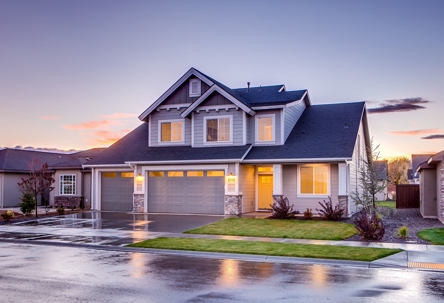Homeowners’ association fees cover a variety of things from maintaining pools and tennis courts to water usage and garbage disposal. Depending on the neighborhood, fees could range form $100 per month to $1,000. Many homeowners are in a difficult financial position and cannot afford to pay their HOA fees which could trigger penalties. So, can HOA fees and dues be discharged in bankruptcy? Keep reading to find out.
What is HOA?
The homeowner’s association is an organization that exists to govern residential communities and manage upkeep. Depending on the type of neighborhood the HOA may serve a different function. For example, the HOA in a planned condo community may oversee the entire property while a residential neighborhood HOA may only have authority to manage communal areas.
Typically, homeowners living in an area with an HOA pay fees to cover the costs of maintain their community. HOA fees can cover things from pool maintenance to landscaping and are a requirement to live in the community.
In some cases, HOAs have a lot of power over what homeowners can do with their home like limiting paint colors for the exterior and whether the homeowner can have certain pets or breeds. Unfortunately, many HOAs handle noncompliance aggressively and may send violation notices and enact fines.
Can the HOA Take Your House?
HOA dues are required, and when a homeowner does not pay, the HOA has the power to penalize them with a lien or foreclosure. Housing developments managed by HOAs have covenants, conditions, and restrictions (CC&Rs) that include giving the HOA authority to collect monthly dues via lien.
A lien is a security interest granted over a property, in this case a home, to secure payment. Once a lien is issued, the grantor or creditor can take the property as collateral for debt. The only way to protect property from a lien is by clearing the debt. HOAs have authority to issue a lien on a homeowner’s house if they are behind on dues and can trigger a foreclosure to enforce it.
In California, HOAs are limited in their ability to foreclose on a home. The homeowner’s association cannot foreclose a home unless:
- The amount of late dues is over $1,800 not including late fees, attorney’s fees, cost of collection, or interest
- The assessment secured by the lien include 12 months of delinquent payments
If the HOA cannot foreclose a home to collect dues, it may file a lawsuit against the homeowner to get a money judgement from the court.
The Right of Redemption
In some cases, homeowners may earn the right to buy back or redeem their property after an HOA foreclosure during the redemption period. When homeowners owe fewer dues, they may have the option to redeem their home. The redemption period is generally 90 days from foreclosure to final sale and during this time, the property does not gain new ownership which leaves an opening for the homeowner to “buy back” their house.
To redeem a home from HOA foreclosure, the homeowner must pay:
- The total lien amounts
- Attorney’s fees and costs
- Interest
- Allowable charges (repair costs, preservation, etc.)
While the right of redemption does give homeowners a second chance at keeping their home, preventing HOA foreclosure is a much better strategy.
How to Stop HOA Foreclosure
If a homeowner cannot prevent an HOA foreclosure, they still have legal options to protect their home. For homeowners struggling with debt, bankruptcy can be a debt relief solution. In bankruptcy, creditors are not allowed to continue collecting debt and the court may discharge most debts through court order.
Generally, the court has the power to discharge HOA dues but not the lien on the property. This means that the homeowner is still obligated to pay back their dues in order to discharge the lien. Regardless of the type of bankruptcy the homeowner may file, the court cannot remove the lien.
There are two common types of bankruptcy for individuals: Chapter 7 and Chapter 13. Chapter 7, also called liquidation, means that a person’s assets can be sold (liquidated) to create funds which are used to pay off debt. Chapter 13 allows the filer to keep their assets, but they must create and execute a repayment plan that results in total repayment of all debt within a time period of three or five years.
In Chapter 7, HOA liability cannot be discharged, and the home maybe foreclosed as part of the liquidation process. Even if the court discharges the pre-bankruptcy delinquent payments, the HOA may still foreclose the home. Additionally, bankruptcy does not discharge debts gained after filing and any delinquent payments during the bankruptcy process are the homeowner’s responsibility.
Chapter 13 gives the homeowner a chance to catch up on missed payments through their repayment plan. As long as the homeowner makes regular payments, the court can protect them from HOA collections. Repayment through Chapter 13 does not resolve HOA payments post-bankruptcy, so it is important to continue making regular payments to prevent another lien.
Protect What Matters
Losing a home because of HOA fees and other debts can be devastating. Many homeowners who go through foreclosure feel helpless and they may not be able to purchase another home for a long time. If you are behind on HOA dues and have a lien on your home, you must contact an attorney. An attorney can advise you on your options including bankruptcy.
Financial Relief Law Center, APC believes that financial difficulties should not define your future. Our firm treats every case with the compassion and attention it deserves, and our team works tirelessly to help our clients protect what matters most.
When you need legal help from a firm with absolute integrity, contact Financial Relief Law Center, APC.

